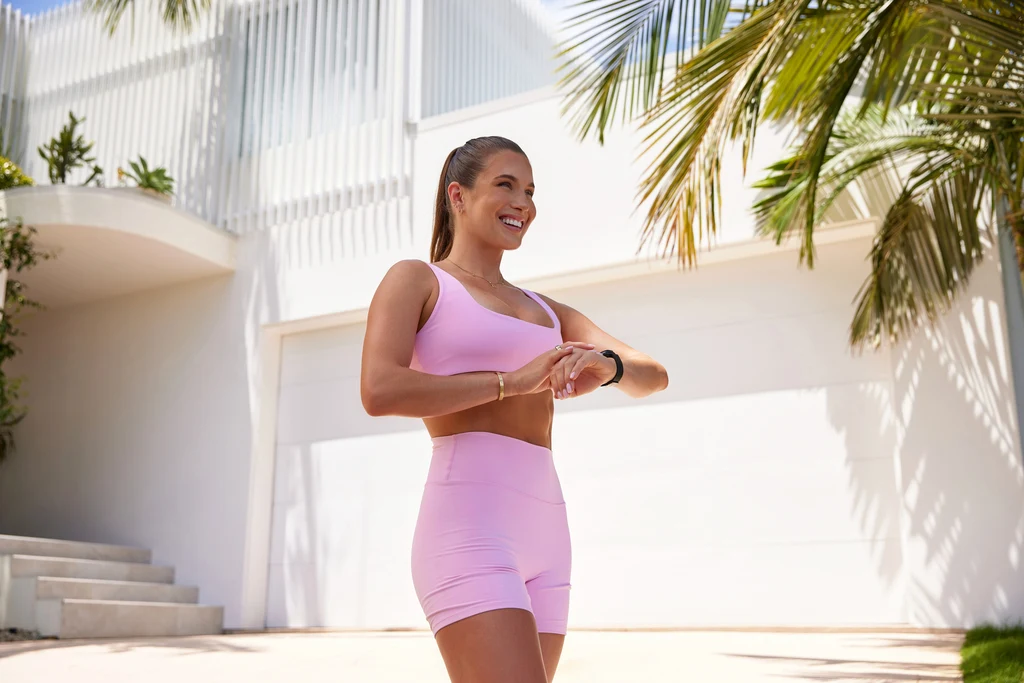Runners, THIS Is Why You Need Strength Training
Make strength training part of your workout routine and your runs will thank you.

December 17, 2024 - Updated December 17, 2024

If you want to be a better runner, running should definitely be a regular part of your fitness mix, but what if we told you that your running routine isn’t complete without strength training, too?
Your best runs should feel strong, powerful and steady, and strength training can truly change your running game one rep at a time.
Katie’s got your back
Katie Martin’s brand-new Sweat Challenge program The Run Up is designed to help you build the strength and confidence you need to get run-ready before you lace up and hit the pavement, whether you’ve been running for a while and want to move with more speed and power or are just starting out on your running journey.
“Starting with strength training builds a strong foundation, preparing your body for the demands of running,” explains Katie. “It helps mitigate muscular imbalances, improve joint stability, and develop good movement patterns, which can prevent injuries and ensure a smoother transition into running. This proactive approach minimises setbacks and maximises performance as you increase your running volume.”
According to the International Sports Sciences Association and the National Academy of Sports Medicine, incorporating strength training in your routine as a runner (or someone who wants to run) can prevent injuries, increase your speed, improve your running efficiency, reduce fatigue and improve recovery, with studies showing that runners who include strength training in their workout mix have better performance.
Having finished multiple half-marathons and a full marathon, Katie has seen the incredible difference strength training has had on her performance and it’s something she will never cut out of her routine. Her runs feel more powerful, her endurance is higher and her perceived level of effort is lower.
“By incorporating strength training into my routine I find my running posture, stride efficiency, and speed improves dramatically! I also find that I recover more quickly after runs and experience fewer aches and pains. Particularly when I am in the thick of my marathon training I find my body can endure the load a lot more easily.”

A full-body approach
Her six-week Sweat Challenge program The Run Up focuses on building strength in your glutes, hamstrings, quads, and calves, as they power each stride, with a mix of double-leg and single-leg work to strengthen the muscles and movement patterns of running.
It’s easy to assume that a strength training program for running would focus purely on lower body strength, but core and upper body training is also an important component to improve stability through your pelvis and spine, support good posture, and prevent excessive torso rotation during your runs.
If you’re worried about being light on your feet and strength training causing you to bulk up and slow you down, don’t worry, this program isn’t geared towards building significant muscle size.
Trust Katie. Trust the science. And make strength training part of your routine whether you’re ready to start your running journey or are trying to take things to another level.
Join the Sweat Challenge
The Sweat Challenge starts on 13 January 2025 and registrations are open now! The Run Up will only be available during the 6-week challenge period, so don’t miss out! Katie can’t wait to train you and get you run-ready for your strongest year yet.

Erin is a writer and editor at Sweat with years of experience in women's publishing, the fitness industry, media and tech. She's passionate about the power of movement, and you can often find her on a yoga mat, a hike, a dance floor, in the ocean or the gym.
* Disclaimer: This blog post is not intended to replace the advice of a medical professional. The above information should not be used to diagnose, treat, or prevent any disease or medical condition. Please consult your doctor before making any changes to your diet, sleep methods, daily activity, or fitness routine. Sweat assumes no responsibility for any personal injury or damage sustained by any recommendations, opinions, or advice given in this article.
Fitness